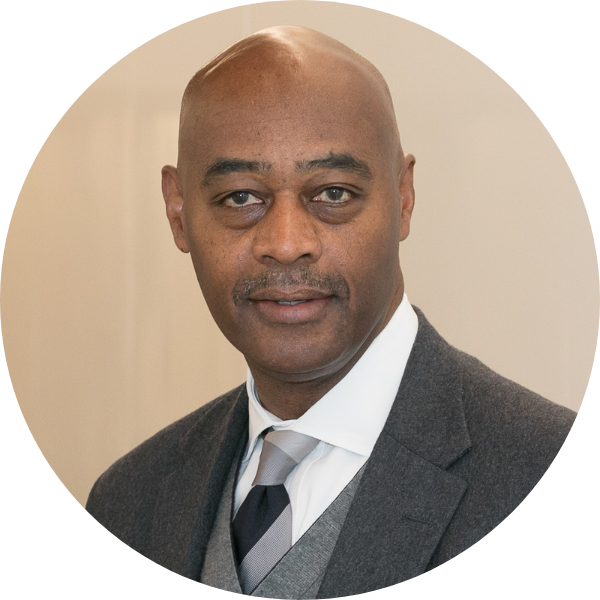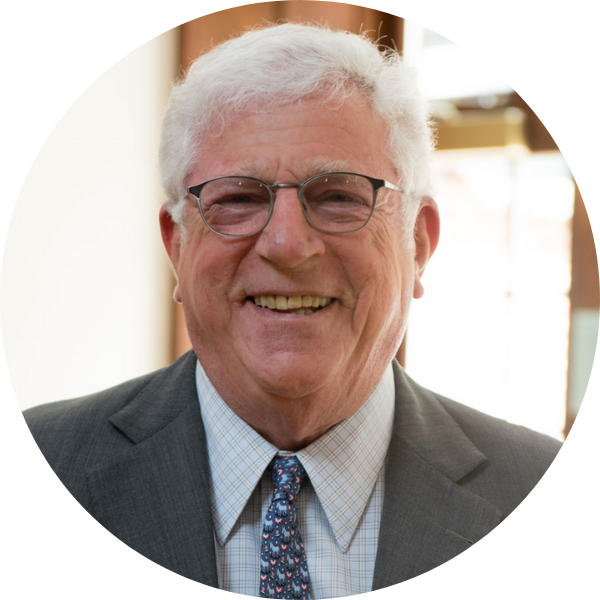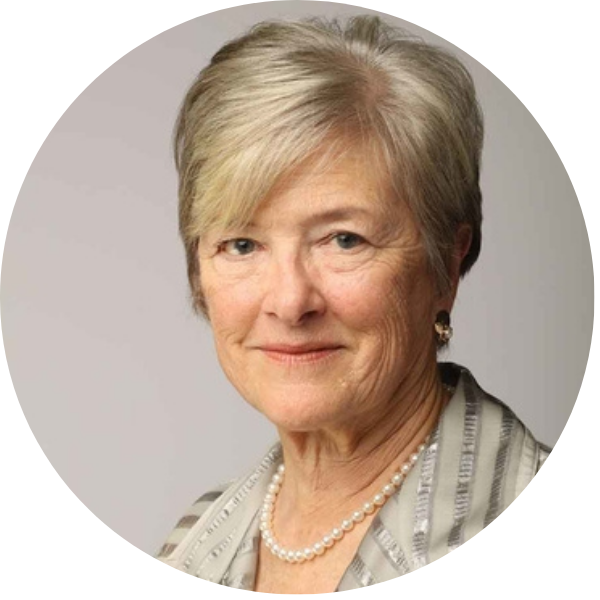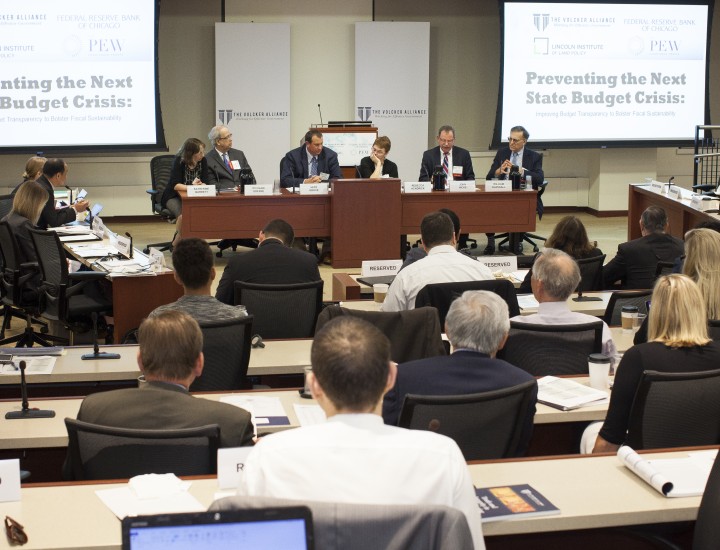Special Briefing on New York City: New Mayor, Federal Aid, Challenges to Recovery

11:00AM
Watch a Special Briefing on New York City: New Mayor, Federal Aid, Challenges to Recovery
Thursday, February 17, 2022, at 11 a.m. EST
The Volcker Alliance and Penn Institute for Urban Research co-hosted a Special Briefing on the challenges New York City faces in 2022 and beyond as its new mayor grapples with COVID-19, street crime, and the possibility of fiscal challenges as federal pandemic aid wanes in coming years.
Our discussion featured findings from Penn IUR's Recovering Cities Project, which tracked the New York economy through 2020-21, producing a series of useful dashboards and a final report, Recovering New York City: A One Year Look Back on the Penn IUR Recovering Cities Project, and a Look Forward towards Recovery. Our panel of experts included Ronnie Lowenstein, former head of the New York City Independent Budget Office; Ray McGuire, former Citigroup Vice Chairman and New York City mayoral candidate; Richard Ravitch, former New York State Lieutenant Governor and Kathryn Wylde, president and CEO, Partnership for New York City.
Moderated by William Glasgall, Volcker Alliance senior director, public finance and Penn IUR Fellow, and Eugenie L. Birch, co-director of Penn IUR, this briefing is the twenty-eighth in a series of sixty-minute online conversations featuring experts from the Volcker Alliance's national research network and Penn IUR, along with other leading academics, economists, and federal, state, and local leaders.
Special Briefings are made possible by funding from The Century Foundation, the Volcker Alliance, and members of the Penn IUR Advisory Board.
Recordings of the entire Special Briefings series are available on the Volcker Alliance website: SPECIAL BRIEFING SERIES ARCHIVE.
Special Briefing Episode Summary:
Budget Surplus Belies NYC Pandemic Recovery Challenges, Panelists Say
By Stephen Kleege, Volcker Alliance Special Project Consultant
While New York City’s coffers are currently flush amid $13 billion in federal emergency pandemic aid, the newly elected mayor of the nation’s biggest municipality faces daunting economic and fiscal challenges in emerging from the COVID-19 pandemic, municipal finance experts said at a February 17 Special Briefing hosted by the Volcker Alliance and the Penn Institute for Urban Research (Penn IUR).
"Things are getting better but they're not really where we need them to be," said Eugenie Birch, co-director of Penn IUR. Almost two years after New York became the epicenter of the pandemic, the city still faces persistent unemployment, a largely vacant office market, an underfinanced public transit system, the expiration of billions of dollars of federal COVID relief programs, and the risk that inflation will drive up the cost of labor contracts, panelists said. Mayor Eric Adams unveiled his $98.5 billion spending plan for Fiscal 2023 the day before the webinar.
The Special Briefing was moderated by Birch, who spearheaded a report on New York as part of Penn IUR’s Recovering Cities Project, and William Glasgall, Volcker Alliance director, Public Finance, and Penn IUR Fellow. It was the twenty-eighth in a series of sixty-minute online conversations featuring experts from the Alliance's national research network and Penn IUR, along with other leading academics, economists, and federal, state, and local leaders. The online discussion featured Ronnie Lowenstein, former Director of the New York City Independent Budget Office (IBO); Kathryn Wylde, president and CEO of the nonprofit Partnership for New York City; Richard Ravitch, former New York State Lieutenant Governor and Alliance director; and Ray McGuire, former Vice Chairman of Citigroup and former candidate for New York City mayor.
In January, the IBO forecast a "surprisingly strong" budget outlook, Lowenstein said. It projected a surplus for the current fiscal year, and budget gaps of only $1.4 billion for next year and $1.6 billion for the year after that, about 2 percent of New York's spending of city-generated revenue. That contrasts with earlier forecasts for deficits as high as $6 billion, Lowenstein said, or 8 percent of the city's own-source spending. She attributed the strength to faster-than-expected vaccine development, unprecedented federal aid, and strength in real estate tax revenue.
"One thing that didn't happen is a robust economic recovery," Lowenstein said. While the nation regained more than nine of ten jobs lost when the pandemic first hit, New York has recovered fewer than six of ten, leaving the city with an unemployment rate of 11 percent, more than double the national average. The city faces a "huge risk in terms of budget balance" from renewing labor contracts. Providing raises under the pattern set in the last round of union bargaining would cost the city $500 million this fiscal year, rising to $2.5 billion in fiscal 2025, Lowenstein said.
Panelists warned that the city will face political pressure to maintain some programs beyond the expiration of federal stimulus in 2016. Lowenstein cited a pre-kindergarten school program that would cost about $800 million a year to maintain.
"These are in many ways one-time events, so we shouldn't get so seduced by where we are in the immediate future," McGuire said. "We need to be careful not to create these zombie programs that will last into the future that we simply cannot finance."
Glasgall said 46 percent of city tax revenue comes from from property levies, raising the specter of a sharp drop in coming years if owners of office buildings, which were only 29 percent occupied as of February 9, seek tax reductions. Wylde expressed confidence in the resiliency of the commercial real estate market, however, estimating office occupancy will rise to 50 percent by the end of March and continue to increase. Though demand for remote work will persist, she said, newly constructed office buildings are likely to succeed, while older buildings may be repurposed for residential use.
Still, workers’ willingness to commute may be undercut by doubts over public safety, she said, referring to recent reports of subway riders being pushed onto tracks by people with mental illness. The pandemic has created "a concentration on mortality in a way we usually don't do," Wylde said. Adams, who is proposing the first spending cut in years and a reduction in head count of ten thousand workers, represents a welcome change for the business community, after eight years under his predecessor, Bill de Blasio, "who specialized in dividing us," Wylde said.
"New York City will come back" Ravitch said. "The mayor's proposed budget is good step in right direction, but he still is going to have deficits." He added that the city is home to “several million very poor people who are in desperate need. We have more homeless than we've ever had before.” Moreover, the city’s low-income residents “are dependent in no small part on the education system. Providing them with the best is critically important to the future of New York."
Ravitch, former chairman of the Metropolitan Transportation Authority, the state agency that runs the city’s mass-transit network, also said he is concerned for the future of "our subway system and our bus system, which is inadequately financed.” The only way the MTA can meet its obligations and deal with returning ridership “is to get a revenue stream enacted by the legislature to create another source of borrowing."
 Ronnie Lowenstein retired as Director of the New York City Independent Budget Office in January, 2022. She was first appointed as IBO’s director in 2000. Ronnie joined IBO at the agency’s inception in 1996, first as chief economist and then as deputy director. Prior to IBO, Ronnie was an economist in the Domestic Research Division of the Federal Reserve Bank of New York and taught economics at Barnard and at Hunter. She received her Ph.D. and M.A. in economics from Columbia University and B.A. from Guilford College.
Ronnie Lowenstein retired as Director of the New York City Independent Budget Office in January, 2022. She was first appointed as IBO’s director in 2000. Ronnie joined IBO at the agency’s inception in 1996, first as chief economist and then as deputy director. Prior to IBO, Ronnie was an economist in the Domestic Research Division of the Federal Reserve Bank of New York and taught economics at Barnard and at Hunter. She received her Ph.D. and M.A. in economics from Columbia University and B.A. from Guilford College.
 Ray McGuire left his role as Vice Chairman of Citigroup and Chairman of Citi’s Banking, Capital Markets and Advisory business to pursue public service in 2020. While at Citi, Mr. McGuire held a 13-year term as Citi’s Global Head of Corporate and Investment Banking, the longest tenure for this position in the history of Wall Street. Under his leadership, Citi leveraged its unmatched global network to meet multinational and sovereign clients’ working capital, debt and equity capital raising and strategic Mergers & Acquisitions needs. Mr. McGuire has personally advised on transactions across global industries and geographies valued at $700 billion+, including Time Warner/AT&T (the fifth largest transaction in history).
Ray McGuire left his role as Vice Chairman of Citigroup and Chairman of Citi’s Banking, Capital Markets and Advisory business to pursue public service in 2020. While at Citi, Mr. McGuire held a 13-year term as Citi’s Global Head of Corporate and Investment Banking, the longest tenure for this position in the history of Wall Street. Under his leadership, Citi leveraged its unmatched global network to meet multinational and sovereign clients’ working capital, debt and equity capital raising and strategic Mergers & Acquisitions needs. Mr. McGuire has personally advised on transactions across global industries and geographies valued at $700 billion+, including Time Warner/AT&T (the fifth largest transaction in history).
Prior to joining Citi, Mr. McGuire was the Global Co-Head of Mergers & Acquisitions at Morgan Stanley; Managing Director in the Mergers and Acquisitions Group of Merrill Lynch & Co., Inc.; and one of the original members of Wasserstein Perella & Co., Inc. where he became a Partner/Managing Director in 1991. He started his career in 1984 in the Mergers & Acquisitions Group of The First Boston Corporation. Mr. McGuire has demonstrated a long-standing commitment to cultural and education institutions. Presently, he serves as a Board member of numerous boards including: the American Museum of Natural History (Executive Committee and Chair Nominating Committee), the Citi Foundation, the De La Salle Academy (Chairman Emeritus), the Greentree Foundation, the Hotchkiss School (Vice President), the New York City Police Foundation, the New York-Presbyterian Hospital, the New York Public Library (Executive Committee and Co-Chairman Nominating Committee), the Skadden Foundation, the Studio Museum in Harlem (Chairman), the Terra Foundation for American Art and the Whitney Museum of American Art (Executive Committee). Mr. McGuire previously served on the boards of the Alex Hillman Family Foundation, the Carnegie Endowment for International Peace, FAPE (Foundation for Art and Preservation in Embassies), the Harvard Club of New York, the Howard Gilman Foundation, the International Center of Photography (President), the Joseph & Claire Flom Foundation, Lincoln Center and the San Remo Tenants’ Corporation (President). In addition, he formerly was a member of the Cultural Affairs Advisory Commission for the New York City Department of Cultural Affairs, as well as a Director of the Wyeth Corporation (Nominating & Governance Committee). He has also served on various Visiting Committees at Harvard University, as well as the Overseers/Directors Nominating Committee.
Through his dedication to mentoring, Mr. McGuire has not only mentored hundreds of individuals, but he has also served on advisory boards for the Council of Urban Professionals, Sponsors for Educational Opportunities and Management Leadership for Tomorrow. Mr. McGuire has received numerous honors and distinctions including the Theodore Roosevelt Award from the Legal Aid Society, the John C. Whitehead Social Enterprise Award from the Harvard Business School Club NY, the Public Service Award from Big Brothers, Big Sisters, the Trailblazer Award from the MBBA, the Humanitarian Leadership Award from CUP (“Council of Urban Professionals”) and the Frederick Douglas Award from the New York Urban League. He was also recognized by New York’s Avenue Magazine as one of New York’s “50 Smartest” and by Crain’s as one of the “Most Connected New Yorkers”. ARTnews includes Mr. McGuire on its list of the world’s “Top 200 Collectors”. He was inducted by Morehouse College as one of the inaugural members of the Martin Luther King, Jr. International Board of Renaissance Leaders. He was also featured in Black Enterprise Magazine as one of the “100 Most Powerful Executives in Corporate America” and on the cover of Black Enterprise Magazine as one of the most powerful Blacks on Wall Street.
Mr. McGuire has been honored by New York Needs You, the Make-A-Wish Foundation, Studio in a School and the National CARES Mentoring Movement. He has also served as Corporate Chair for the 2016 Howard University Charter Day. Pratt Institute honored him as its inaugural distinguished “Patron of the Arts”. Mr. McGuire has also been honored with Harvard Business School’s African American Student Union’s Professional Achievement Award, has presented at Harvard Law School’s Traphagen Distinguished Alumni Speaker Series and emceed the first Harvard College Black Alumni Weekend. He received his M.B.A. and J.D. from Harvard Business School and Harvard Law School (1984), and an A.B., cum laude, from Harvard College (1979). He also attended the University of Nice, France while on a Rotary Fellowship (1980). He has had legal experience at the law firms of Skadden, Arps, Slate, Meagher & Flom as well as Patterson, Belknap, Webb & Tyler. He received a L.H.D. from Pratt Institute (2011) and a L.H.D from Dominican College (2017). Mr. McGuire resides in New York City with his wife, Crystal McCrary McGuire. Together they are raising three children.
 Richard Ravitch is an attorney, businessman, and public official, engaged in both private and public enterprise for more than fifty years. He began his career as a principal of the HRH Construction Corporation, where he supervised the development, financing, and construction of over 45,000 units of affordable housing in New York, Washington, D.C., Puerto Rico, and other locations. In 1975, he was appointed chairman of the New York State Urban Development Corporation (UDC) by Governor Hugh Carey. The UDC, a "moral obligation" financing and development agency with 30,000 dwelling units under construction, had become insolvent and faced the first municipal bankruptcy since the 1930s.
Richard Ravitch is an attorney, businessman, and public official, engaged in both private and public enterprise for more than fifty years. He began his career as a principal of the HRH Construction Corporation, where he supervised the development, financing, and construction of over 45,000 units of affordable housing in New York, Washington, D.C., Puerto Rico, and other locations. In 1975, he was appointed chairman of the New York State Urban Development Corporation (UDC) by Governor Hugh Carey. The UDC, a "moral obligation" financing and development agency with 30,000 dwelling units under construction, had become insolvent and faced the first municipal bankruptcy since the 1930s.
From 1975 to 1976, Mr. Ravitch assisted New York City and State officials in resolving the city's defaults. In 1979, he was appointed chairman and chief executive of the Metropolitan Transportation Authority (MTA), where he recruited operating officials from the private sector with experience in marketing as well as management and operations, and developed a long-term capital plan, budget, and financing for a system-wide upgrade of operating equipment, roadbed, and signal capabilities. For his MTA work, he was awarded the American Public Transit Association's Individual of the Year Award in 1982.
Following his MTA service, Mr. Ravitch led the effort to recapitalize The Bowery Savings Bank, once the nation's largest mutual savings bank, arranging for its acquisition from FDIC by an investor group and serving as chairman and chief executive. Subsequently, Mr. Ravitch was retained by the owners of the Major League Baseball clubs to serve as president of the Player Relations Committee and oversee the creation of a revenue sharing plan and proposal for players.
In 1999, Mr. Ravitch was appointed co-chair of the Millennial Housing Commission to examine the federal government's role in meeting the nation's growing affordable housing challenges. He more recently serves as lieutenant governor of the State of New York and was co-chair of the State Budget Crisis Task Force with former chairman of the Federal Reserve, Paul A. Volcker. Mr. Ravitch is a Phi Beta Kappa graduate of Columbia College and received his bachelor of laws from Yale University School of Law.
 Kathryn Wylde is president and ceo of the nonprofit, Partnership for New York City, the city's leading business organization. Its mission is to work with government, labor, and the civic sector to build a stronger New York, with a focus on education, infrastructure, and the economy.
Kathryn Wylde is president and ceo of the nonprofit, Partnership for New York City, the city's leading business organization. Its mission is to work with government, labor, and the civic sector to build a stronger New York, with a focus on education, infrastructure, and the economy.
Prior to taking over the Partnership presidency in 2001, Wylde was the founding CEO of both the Partnership's housing and investment fund affiliates. From 1982 to 2000, she was responsible for developing and managing affordable housing and economic development programs that contributed to the renaissance of blighted urban neighborhoods across the five boroughs. With the investment fund, she developed a network of business leaders and investors that nurtured the growth of the city's "innovation economy," creating thousands of jobs and promoting entrepreneurial business initiatives.
Wylde is an internationally known expert in housing, economic development, and urban policy. She has received honorary degrees from Fordham University and St. Francis College and serves on a number of boards and advisory groups, including the NYC Economic Development Corporation, the Fund for Public Schools, Manhattan Institute, Sponsors for Educational Opportunity and the Governor's NYC Regional Economic Development Council. She has authored numerous articles and policy papers and has been recognized for her leadership by dozens of educational, professional, and nonprofit institutions.
Prior to joining the Partnership, Wylde worked in senior positions at the former Anchor Savings Bank and at Lutheran Medical Center in Sunset Park, Brooklyn. She is a native of Madison, Wisconsin, a graduate of St. Olaf College, and resides in Brooklyn, New York.


